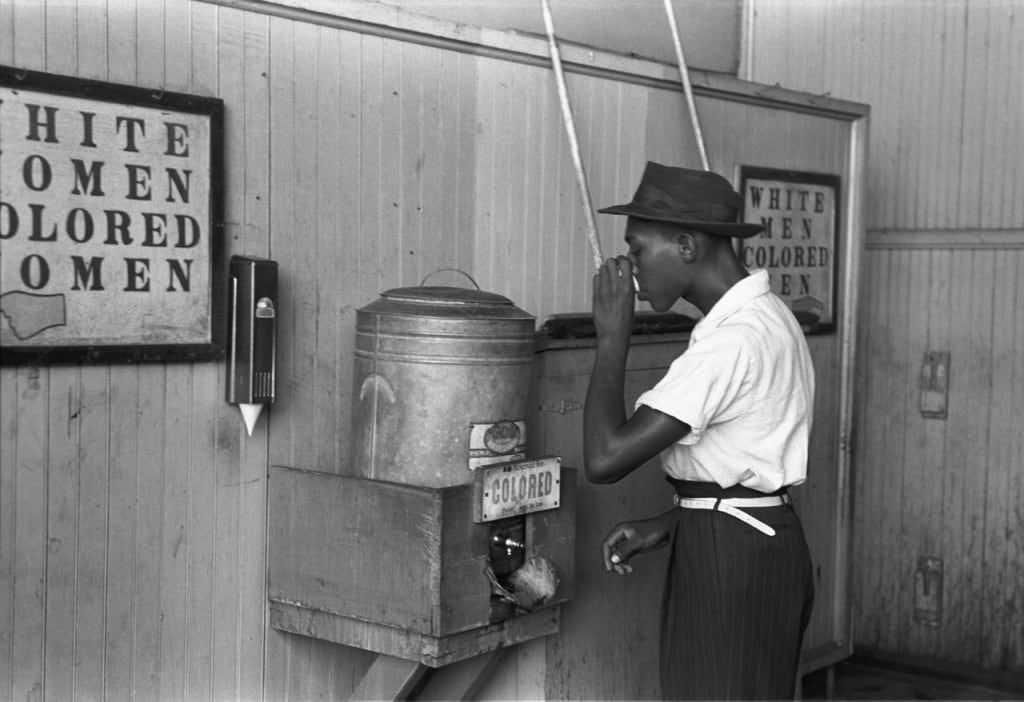Should the U.S. Pay Reparations to Black Americans?
We’re faced with the impossible choice of leaving a critical debt unpaid or obligating a generation that wasn’t directly responsible to pay it

I know that most people are already fixed in their position for or against reparations, and many will prematurely close out this article as soon as it looks like the conclusion being reached doesn’t agree with their own. However, there are many factors being considered below and the argument is a winding one. Ultimately, any that are entirely for or entirely against are likely to disagree in part with the final conclusion reached.
To the staunchest opponents of reparations, I first want to ask the following question: Should Americans who were alive at the time that slavery ended have paid reparations to former slaves? When we consider that reparations, consisting of $20,000 per person and a formal apology from President Ronald Reagan, were later paid to Japanese Americans locked in internment camps during World War II, we can see that at least to be consistent, reparations for former slaves are no doubt warranted. Moreover, the order to pay reparations to former slaves was, in fact, given and later overturned by President Andrew Johnson, and many freedpersons had come to expect reparations after that initial order. To further exacerbate the matter, in the District of Columbia, the federal government actually compensated slave owners $300 (which would be equal to about $9,000 as of 2023) for each of the slaves they were forced to free. Clearly, that reparations should have been paid at the time is beyond conjecture. The issue, then, is not whether or not reparations should be paid, but whether or not they should be paid now, after such an extreme delay and long after the last of those former slaves passed away.
Well, how long was the delay really? Slavery was outlawed in 1865. But the era of Jim Crow picked up right where slavery left off, and Blacks were forced to live like second-class citizens for the next hundred years or so, until the 1960s. Slavery in what is now the United States had been around since 1619. In other words, for approximately 350 years Black people were explicitly and legally treated as either property or second-class citizens in what is now referred to as the United States of America. Conversely, it has only been about 60 years since that era came to an end. There are, of course, many people who were alive then that are still alive now.
Should reparations be paid out to the descendants of those former slaves? Morally speaking, of course, they should. The principle of justice tells us that every wrong deserves to be righted. That repayment was delayed for so long is more likely to suggest that it should come with interest than that it be forgotten altogether, but in truth, there is no righting that wrong. Every one of those former slaves saw their lives end without receiving what was rightfully due to them. And, in the case of modern Americans, it is unfair to expect that a person is born with a debt because of the sins of their parents. It is an irremediable neglect of moral duty that the debt was not paid out by the perpetrators themselves. The reason this question is so difficult to answer is that, yes, reparations should certainly be paid, but, no, modern Americans should not be asked to pay them. Modern Americans should want to pay reparations, but they should not be obligated to.
However, drawing on the circumstances that followed slavery, I’d suggest that the history of oppression be looked at as a continuum. Do modern day Americans owe reparations for Jim Crow? Here, I would suggest we get closer to an unequivocal “yes.” Again, it is likely that no more than a handful of Americans living today played any significant role in establishing or upholding those laws. Again, it is a debt that went unpaid at the time when it should have been paid, and all or almost all of the direct actors escaped their obligation in death. And yet again, the wrong itself remains eternally deserving of recompense. The result is fundamentally the same: Modern Americans should want to pay reparations for Jim Crow, but they should not be obligated to. However, what all modern Americans should be held to account for is the effects of those laws that linger on today.
What 350 years of codified oppression has led to is an unnatural inequality in modern day America. In 2021, the average Black family had roughly 1/10th the wealth of the average White family. (White families had 9.2x the wealth to be exact.) This extreme wealth gap is a direct consequence of laws that worked to disadvantage Black Americans in every way imaginable. The utter destruction of any possibility for creating generational wealth within Black America is something that affected not only Black Americans at the time, but that directly disadvantages Black Americans born today. That type of oppression is self-perpetuating. It’s not enough to remove the laws that caused it. There needs to be an intervention that is opposite in kind to put that self-perpetuation to an end, and an obligation to carry out that intervention falls at the feet of the current American citizenry.
If my father set your father’s home on fire, I can argue in good faith that I do not owe you for what I did not do. But if that fire continues to burn to this day, and I do nothing to stop it, I have directly committed an act of moral negligence. Should Americans be obliged to rectify wrongs that occurred before they were even alive? They should want to but not feel compelled to. Should Americans feel compelled to intervene to put an end to an active wrong? Absolutely.
What would this look like? In a vacuum, it looks like government intervention to directly catch up Black Americans to the national average. Can the government realistically do as much? Of course not. For one, you’d never find the political will. Second, that type of wealth redistribution would put a massive strain on the system. Third, inflation and/or the government debt would likely run wild as a result (even more so than currently). It’s always ideal to employ Hume’s guillotine to separate what “ought to” be from “what is” when making arguments that are ultimately moral in nature, but when the argument becomes financial, we have to defer more to Otto Von Bismarck’s line of reasoning than David Hume’s, and say as he said, “Politics is the art of the possible, the attainable — the art of the next best.”
The consequences of poverty are far reaching, from less happiness and worse health outcomes to worse access to education and higher rates of criminality. Thus, America should seek to undo the intentional impoverishment of Black America with a multi-factor approach. Criminal justice reform, for example, is a major issue. If people that resort to criminality, in order to make money, are offered assistance in pursuing legal methods for making money after they’re released from prison — such as by access to an education or help with career development — instead of being barred from most opportunities for lawful employment as a result of their legal troubles, that would go a long way. A rehabilitative approach to criminal justice doesn’t even need to be targeted at Black Americans, it will help the poor of all races.
Reforms around the way public schools are funded is another area for opportunity. Many Black schools are underfunded because public schools are primarily paid for with local property taxes. If you live in a low-income area, there’s not going to be much in the way of property tax revenue because property values are apt to be lower. If this were changed so that all of the property tax revenue was functionally pooled on a state or national level, and then redistributed in accordance with the rate that a municipality taxed itself at (independent of the actual tax revenue they generate), the system would be more fair, as people would be getting their schools funded in accordance with the tax burden they elect to place on themselves. This would level the playing field for schools in poorer municipalities, making it so they’re not getting less funding just because the property in their area is less expensive. Again, this would benefit all poor people in America, not just Black Americans, but since a disproportionate number of Black Americans have been made poor by a history of oppressive governance, it will have an outsized impact on wealth creation within Black communities.
Other interventions are already being undertaken in part and should be expanded on, such as programs that help with loan attainment, home and car ownership, building credit, paying for school and healthcare, etc. If we can muster the political will, some direct payments or suspension of tax collection could be warranted as well. America should actively set about clearing away the oppressive poverty that disadvantages Black Americans born today, and that is a direct result of the policies set by our forebearers. There should be aggressive and creative policy enacted to that end. We may have inherited the present circumstances, but there’s no argument to be made for leaving our fellow citizens to continue to suffer under a manufactured inequality. This is our direct responsibility.
Conclusion
The wrongs of centuries past are as deserving of reparations as they ever were, but the son does not inherit the sins of the father. Modern Americans should want to offer reparations to Black Americans, but they shouldn’t be obligated to. What modern Americans should be obligated to do is to right the consequences of those wrongs that are still playing out today. It is an act of moral negligence not to. The policies that ensured all Black Americans would live in relative poverty were active until just 60 years ago, and the effects of that ensures that most Black Americans born today will be born completely bereft of any generational wealth, and therefore at an extreme disadvantage. This wrong is occurring in our time, before our eyes, and it is incumbent on us to do something about it.
The purpose of this article was not to suggest policy as that should be an intensive, deliberative process. The focus here was tackling the complicated but less granular debate of what should be done, not how it should be done. But from the smattering of possible policy interventions offered above, we can see that many of the ones that could help get us where we should be are good, low-cost ideas, even when looked at independent of the racial inequality they’re seeking to address. The others recommended here are neither excessive, nor difficult to carry out. In fact, I would argue that those suggested above skew towards being too little rather than too much. In reality, it is the very least we should do, and that’s why it should be done with alacrity and immediacy.
About the Creator
Martin Vidal
Author of A Guide for Ambitious People, Flower Garden, and On Authorship
martinvidal.co
martinvidal.medium.com
Instagram: @martinvidalofficial






Comments
There are no comments for this story
Be the first to respond and start the conversation.